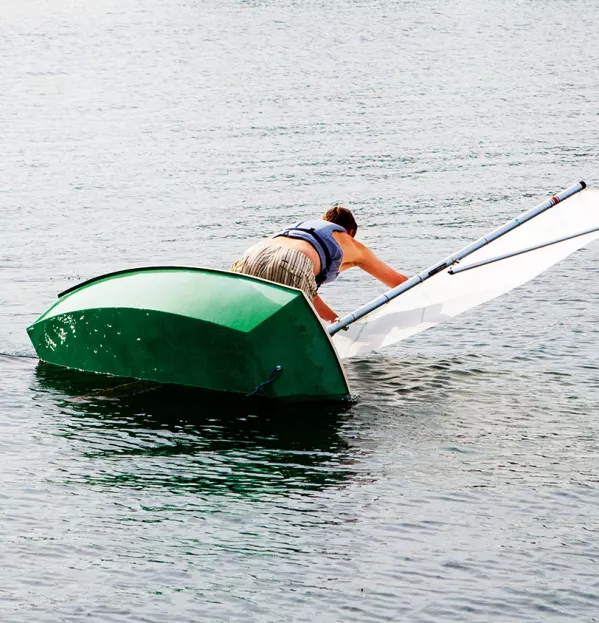Failed over safeguarding fears...and then forgotten

The inspectors’ concerns were clear, Phil Munday says. They believed that the Hampshire secondary where he worked was not doing enough to protect vulnerable pupils.
So they placed the school in special measures and told staff that there would be a follow-up inspection within six months.
Staff waited for the inspectors to return. And waited. And waited. But still the inspectors did not come.
A Tes investigation has established that this is far from the only case in which Ofsted has not returned to conduct further checks on a school that failed an inspection over pupil-safeguarding concerns.
Of the 18 schools judged to be “inadequate” solely because of safeguarding concerns since September 2015, four - almost a quarter - have not had follow-up inspections since. This has left gaps of between six and eight months since Ofsted first raised concerns about safeguarding in those schools.
Pupils potentially at risk
The continuing delay appears to be at odds with Ofsted’s own policy. The watchdog’s handbook for monitoring inspections says: “In the case of schools where serious safeguarding concerns have been identified, it is essential that early action is taken to ensure that pupils are safe”.
And a spokesperson for the inspectorate says that schools judged to have ineffective safeguarding “will normally have their first monitoring inspection within three to six months of the publication of the report that judged them ‘inadequate’”.
But the Tes analysis shows that this often does not happen.
Geoff Barton, general secretary of the Association of School and College Leaders, says that, without quick follow-up inspections, pupils are potentially placed at risk.
“If a safeguarding issue has been identified, we’d want a prompt follow-up from Ofsted, so parents are reassured that it has been addressed, and that pupils aren’t at risk,” he says. “It seems to us that it’s the only way: to do a follow-up visit as soon as possible, to give the school the chance to make reparations. It’s in the interest of Ofsted to do that, and it’s in the interest of schools.”
Phil Munday’s former school, Cranbourne Business and Enterprise College, is not among the 18 schools, as safeguarding was just one of the reasons that Ofsted failed the secondary.
However, inspectors were clear that pupil safeguarding at Cranbourne was “inadequate”. The school had not established a team “fully committed to equal opportunities for all…and where discrimination of any kind is not tolerated”, they wrote.
“Some pupils use unacceptable language to others - for example, homophobic language. This type of behaviour sometimes goes unchecked.”
But more than a year and a half after that inspection, Ofsted has still not been back for a follow-up.
“They said students are not safe,” says Munday, who taught science at Cranbourne. “That was in December 2015 - 18 months ago. In that time, Ofsted has not visited. They never checked whether pupils were safe.
“I think that’s inadequate, really. I think that’s poor.”
Ofsted says it has yet to visit the school because it was subject to an academy order - but it is monitoring the school’s progress.
Cranbourne head Jane Aplin - who did not work at the school when it was last inspected by Ofsted - says: “It is clear to me, from the Ofsted inspection report, that the inspectors’ concerns related to procedures and record-keeping, and not to any incident involving one of our pupils.”
She says that procedures have since been tightened and a local authority inspection in January had “concluded that our safeguarding procedures are robust”.
Part of the problem, Barton argues, is that “safeguarding” covers everything from pupil suicide or abuse to whether the school’s CRB list is kept up to date. “The trouble is that ‘safeguarding’ is such a huge, all-encompassing term,” he says. “There should be a much tighter definition of what Ofsted means by it.”
Barton suggests that the ideal solution would be to separate out safeguarding inspections from general school inspections, as is the case in independent schools.
“Safeguarding should be decoupled from routine inspections,” he says. “They should just do routine checks for safeguarding, so that the whole inspection isn’t dependent on that.”
Ofsted says that two of the four schools without follow-up visits are due to have monitoring inspections soon, and one will reopen in September as an academy.
A spokesperson for the watchdog adds: “If Ofsted has concerns, including those relating to safeguarding, about the performance of any school [that falls within the scope of Ofsted inspections], we can inspect it at any time.
“Each situation and circumstance would be considered in context and this could affect the timing of any such inspection.”
You need a Tes subscription to read this article
Subscribe now to read this article and get other subscriber-only content:
- Unlimited access to all Tes magazine content
- Exclusive subscriber-only stories
- Award-winning email newsletters
Already a subscriber? Log in
You need a subscription to read this article
Subscribe now to read this article and get other subscriber-only content, including:
- Unlimited access to all Tes magazine content
- Exclusive subscriber-only stories
- Award-winning email newsletters